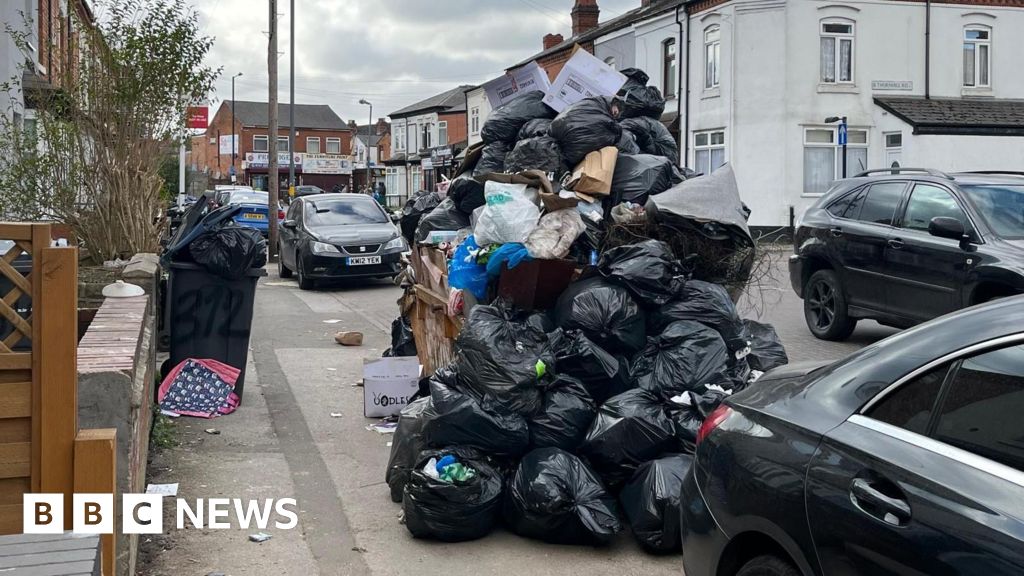Bin strike exposes divide between rich and poor
TruthLens AI Analysis
The ongoing strike by bin workers in Birmingham highlights a stark socio-economic divide in the city, particularly in how different neighborhoods are experiencing the fallout. The article brings attention to the unequal impact of the strike on residents, with wealthier areas remaining largely unaffected while poorer districts endure significant waste accumulation.
Socio-Economic Divide Illustrated
The article emphasizes how the strike has exacerbated existing inequalities in Birmingham. Inner-city areas like Balsall Heath are facing serious sanitation issues, while affluent neighborhoods such as Harborne remain pristine. This contrast not only sheds light on the immediate consequences of the strike but also raises questions about the broader implications of such labor disputes on different socio-economic classes.
Union Dynamics and Labor Issues
The strike began in January over proposed downgrades and pay cuts for workers, escalating into an all-out strike that has lasted for six weeks. The actions of the Unite union reflect a resistance to perceived injustices in labor practices and serve as a reminder of the ongoing tension between labor rights and municipal governance. The union's demand for a firm offer and a guarantee against further pay cuts illustrates a critical negotiation point that could influence labor relations in the region.
Possible Hidden Agendas
While the article presents the situation transparently, the focus on the socio-economic divide may also serve to draw attention away from the underlying issues of labor rights and municipal management. By highlighting the disparities, the narrative could be steering public sentiment toward viewing the strike primarily through a socio-economic lens, potentially sidelining discussions about the rights of workers and employer responsibilities.
Manipulative Elements
The framing of the article can create a perception of the strike as a class struggle, which may not fully encompass all perspectives involved. While it highlights the suffering of lower-income residents, it may inadvertently demonize the striking workers as the cause of the problem, rather than presenting a more nuanced view of the complexities involved in labor disputes.
Impact on Public Sentiment and Future Actions
The reporting could influence public opinion by garnering sympathy for the affected lower-income communities while also inciting frustration toward the striking workers. This duality could lead to increased pressure on the local government to resolve the strike swiftly, potentially setting precedents for future labor negotiations.
Community Reaction and Support
The article likely resonates more with lower-income communities who are directly affected by the strike. Conversely, wealthier residents may feel less inclined to support the striking workers, as they are not experiencing the same inconveniences.
Economic and Political Implications
This situation could have broader implications for local governance and public services in Birmingham. If the strike continues or escalates, it may affect local election dynamics, as constituents weigh the effectiveness of their representatives in managing labor disputes. Additionally, waste management companies and local businesses could experience economic downturns due to the strike's negative impacts on community health and cleanliness.
Global Context
While this local issue may not have significant global ramifications, it reflects a broader trend of labor disputes seen worldwide. The ongoing challenges between labor and management are echoed in various sectors, indicating a potential for similar unrest elsewhere.
AI Influence
It's plausible that AI tools could have been employed in the drafting of the article to analyze trends, assess language patterns, or even streamline the reporting process. However, the article's tone and focus suggest a human touch, particularly in its nuanced portrayal of socio-economic issues.
The overall reliability of the news piece is moderate. It effectively presents the situation while highlighting important socio-economic disparities, but the framing may skew public perception by emphasizing class struggles over labor rights. The complexity of labor disputes warrants a more comprehensive narrative that encompasses all stakeholders involved.
